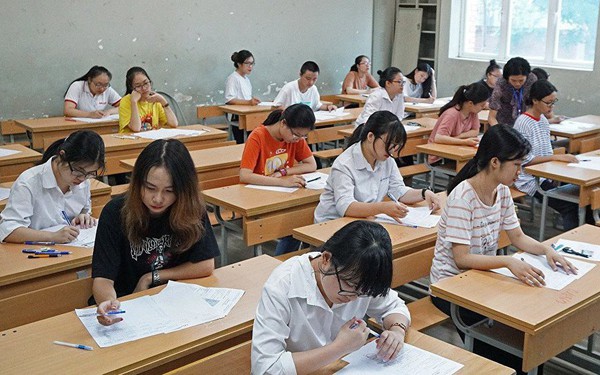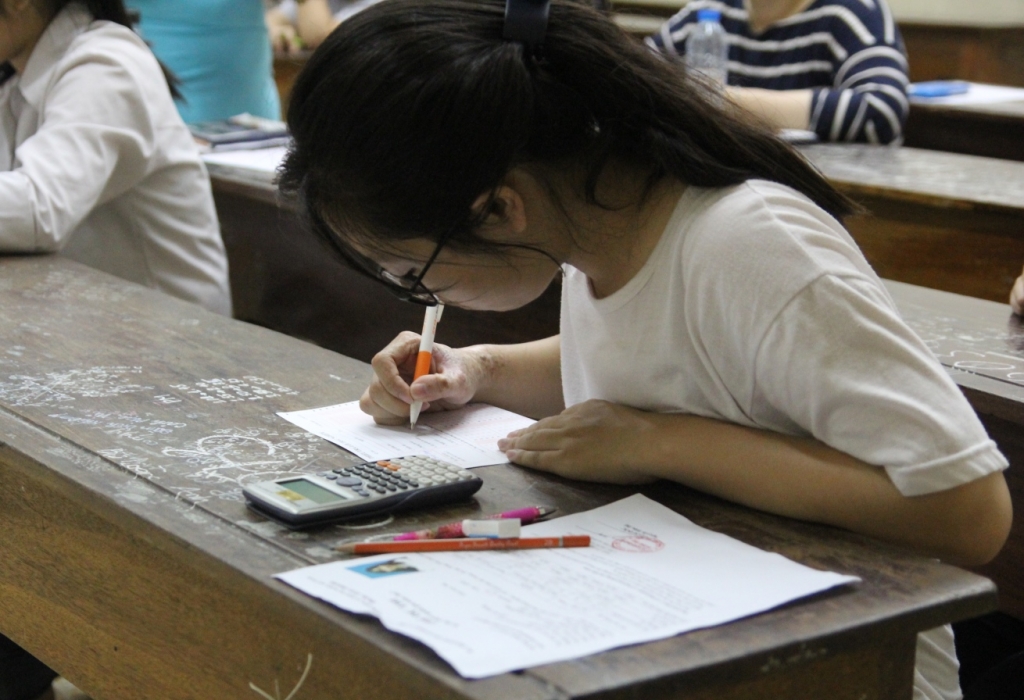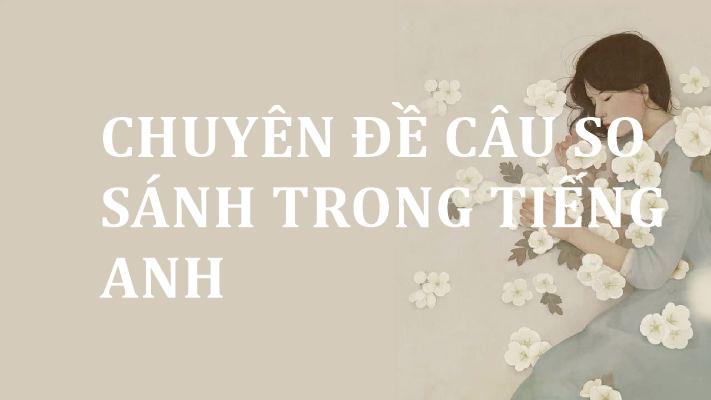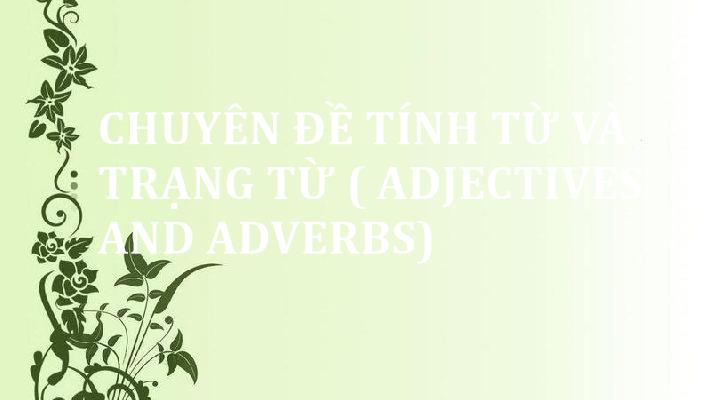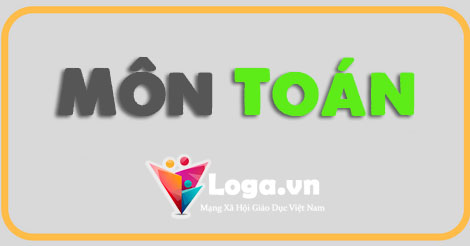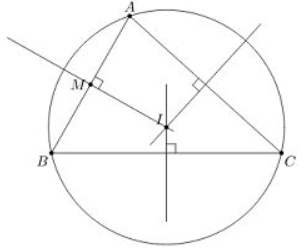UNIT 11:
BOOKS
I. TỪ VỰNG
|
1.
Fascinating (adj) /ˈfæs.ən.eɪ.tɪŋ/ Say
mê, hấp dẫn • He told some fascinating
tales about his life in India. Anh ấy kể vài câu chuyện
hấp dẫn về cuộc sống của mình tại Ấn Độ. |
|
2. Personality
(n) /pə:sə'næləti/ Nhân
cách, nhân phẩm ·
She has a likable personality. Cô ấy có một nhân cách
đáng yêu. |
|
3. Survive
(v) /sə'vaiv/ Sống
sót, tồn tại • These plants cannot survive in very cold conditions. Những cây này không thể tồn
tại trong điều kiện rất lạnh. |
|
4.
Reunite (v) /,ri:ju:'nait/ Đoàn
tụ • Sarah was finally reunited with her children at the airport. |
Sara cuối cùng cũng được đoàn tụ với con
mình tại sân bay.
|
5. Unnoticed (adj) /ʌn´noutist/ Không
chú ý • Her forty-fourth birthday had just
passed, unnoticed by all but herself. Sinh nhật bốn mươi tư của cô
vừa trôi qua, không được ai chú ý trừ bản thân cô. |
|
6.Wilderness
(n) /’wɪldənes/ Hoang
dã, nơi hoang vu • This is one of the largest wilderness areas in North America. Đây là một trong những khu vực
hoang dã lớn nhất ở Bắc Mỹ. |
MODAL VERBS IN THE PASSIVE
(CÂU BỊ ĐỘNG CỦA TỪ KHIẾM KHUYẾT)
Passive voice
for Present/Future Modals verbs
“CAN, MAY, MIGHT, SHOULD, MUST, OUGHT TO...”
|
STT |
ACTIVE VOICES |
PASSIVE VOICES |
|
1 |
May/might + V She may eat an apple. (Cô ấy có thể ăn một quả táo.) |
May/might + be + PII/Ved An apple may be eaten. (Một quả táo có thể được ăn.) |
|
2 |
will + V He will buy another car tomorow. (Anh ấy sẽ mua cái xe khác vào ngày mai) |
will + be + PII/Ved Another car will be bought tomorow. (Cái xe khác sẽ được mua vào ngày mai) |
|
3. |
be going to V I am going to kill her. (Tôi sẽ giết cô ấy) |
be going to be PII/Ved She is going to be killed by me. (Cô ấy sẽ bị giết bởi tôi) |
|
4. |
Should + V We should bake this
bread soon. |
Should + be + PII/Ved This bread should
be baked soon. |
|
5. |
ought to V |
ought to be PII/Ved |
|
6. |
Have/has to V |
Have to be PII/Ved |
|
7. |
Must + V |
Must + be + PII/Ved |
|
8. |
Be
supposed to + V |
Be supposed to + be + PII/Ved |
Passive voice for Past Modals
“MAY HAVE, MIGHT
HAVE, SHOULD HAVE, MUST HAVE, OUGHT TO HAVE”
|
ACTIVE VOICES |
PASSIVE VOICES |
|
Modal + have + PII/Ved
(Bạn đã có thể đã làm bài tập này từ hôm qua.) - They must have built this
house over 20 years ago.
|
Modal + have + been + PII/Ved
(Bài tập này đã có thể được làm từ hôm qua.) - This house must
have been built over 20 years ago.
- The gift should have been sent last
week. |
III. Bài tập.
Exercise 1: Rewrite the sentences in passive voice.
1. I can
answer the question.
__________________________
2. She
would carry the box.
__________________________
3. You should open the window.
________________________
4. We might
play cards.
__________________________
5. You
ought to wash the car.
__________________________
6. He must
fill in the form.
__________________________
7. They
need to buy the bread.
___________________________
8. He could not read the sentence.
___________________________
9. Will the teacher test our English?
_________________________
10. Could Jenny lock the door?
________________________
11. You
should have answered the
easy questions first.
__________________________
12. You can have served this
wine with chicken or fish.
____________________________
13. You
should have finished the
work before you leave.
_____________________________
14. They
could have felt the
earthquake 20 km away.
_____________________________
15. You must have given the
students enough time to finish.
_______________________________
Exercise 2:
Choose the best answers.
16. The museum
has a _____ collection of exhibits
ranging from Iron Age pottery to Inuit clothing.
A. beautiful
B. gorgeous
C. lovely
D. fascinating
17. Here in this
interior ______, the harps could find the sensitive quiet needed to record them.
A. jungle B. wilderness
C. city
D. river
18. He has a
dynamic______, makes excellent decisions, and is a true leader.
A. personality
B. look
C. quality
D. origin
19. The economic
contribution of women was substantial, but largely______ because their
traditional role was taken for granted.
A. different
B. unnoticed
C. unlikeable
D. unimpressed
20. All of the
members of the original band still have active music careers and occasionally _______
for concerts.
A. meet
B. separate
C. reunite D.
organize
21. Friendless
and jobless, he wondered how he would ______ the year ahead.
A. suvive
B. live
C. animate
D. perish
Exercise 3: Fill in and rewrite the sentences.
22. David ______drink
a lot of coffee. He's finished two packets already this week.
-> A lot of coffee
_________________________
23. I ______clean
the floor today because I cleaned it yesterday.
-> The
floor______________________________
24. We
__________ forget to lock all the doors before we leave.
25. I ______ spend
too much money today, as I've only got a little left.
-> Too much money________________________
26. I _____
bought bread because I didn't know we needed it.
-> Bread
_________________________________
27. We ______ invited so many people to our
party! I'm worried that we won't have enough room for everyone.
-> So many
people__________________________
28. I’m running out
of money. I ______ started saving money years ago!
-> Saving
money___________________________
29. Amanda
______ finished the work, but she felt ill and had to go home.
-> The
work_______________________________
30. We ________
finished the game, even if we'd wanted to. It was raining very hard and we had
to stop.
-> The
game________________________________
* Đáp án:
1. The question can
be answered.
2. The box would
be carried.
3. The window should
be opened.
4. Cards might
be played.
5. The car ought
to be washed.
6. The form must
be filled in.
7. The bread need
to be bought.
8. The sentence couldn’t
be read by him.
9. Will our
English be tested by the teacher?
10. Could
the door be locked by Jenny?
11. The easy question should have been answered first.
12. This wine can
have been served with chicken or fish.
13. The work should
have been finished before you leave.
14. The earthquake could have been felt 20 km away.
15. The students must
have been given enough time to finish.
16. D. fascinating
(Bảo tàng có một bộ sưu tập hấp dẫn các cuộc triển
lãm từ đồ gốm thời kỳ đồ sắt đến trang phục Inuit.)
17. B. wilderness
(Ở nội địa vùng hoang dã bên trong này, đàn hạc có
thể tìm thấy sự yên tĩnh cần thiết để ghi lại chúng.)
18. A. personality
(Anh ấy có tính cách năng động, đưa ra những
quyết định tuyệt vời và là một nhà lãnh đạo thực thụ.)
19. B. unnoticed
(Sự đóng góp về kinh tế của phụ nữ là đáng kể, nhưng
phần lớn không được chú ý vì vai trò truyền thống của họ đã được thừa
nhận.)
20. C. reunite
(Tất cả các thành viên đầu tiên của ban nhạc vẫn hoạt
động trong âm nhạc tích cực và thỉnh thoảng đoàn tụ cho các buổi hòa
nhạc.)
21. A. survive
(Không bạn, không việc làm, anh ta tự hỏi làm thế nào
anh để sống sót trong năm tới.)
22. Must (suy
luận mang tính chắc chắn)
A lot of coffee must
be drunken by David.
23. Don’t have
to (không cần thiết)
The floor don’t
have to be cleaned today because I cleaned it yesterday.
24. Don’t have to (không cần thiết)
25. Must (suy
luận mang tính chắc chắn)
Too much money must
be spent today, as I've only got a little left.
26. Couldn’t
have (không có khả năng xảy ra)
Bread couldn’t
have been bought because I didn't know we needed it.
27. Shouldn’t
have (sự tiếc nuối)
So many people shouldn’t
have been invited to our party! I'm worried that we won't have enough room
for everyone.
28. Should have
(sự tiếc nuối)
Saving money should
have been started years ago!
29. Would have
(dự đoán sự việc có thể xảy ra trong quá khứ)
The work would
have been finished by Amanda, but she felt ill and had to go home.
30. Couldn’t
have (không có khả năng xảy ra)
The game couln’t have been finished, even if
we'd wanted to. It was raining very hard and we had to stop.
IV.Tips:
- Học
thuộc từ vựng về nghĩa và cách phát âm, trọng âm
- Học
thuộc cấu trúc, xem kĩ ví dụ.
- Làm bài tập vận dụng, tự chấm sau đó đối chiếu đáp án, lời
giải thích, áp dụng vào lý thuyết để hiểu sâu hơn bản chất.

